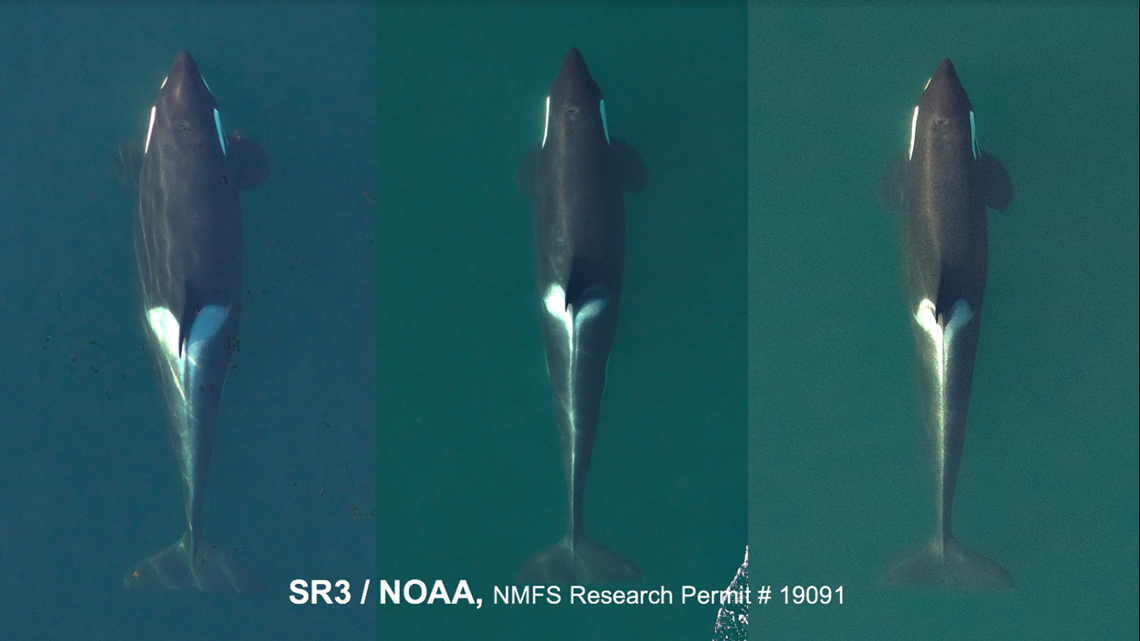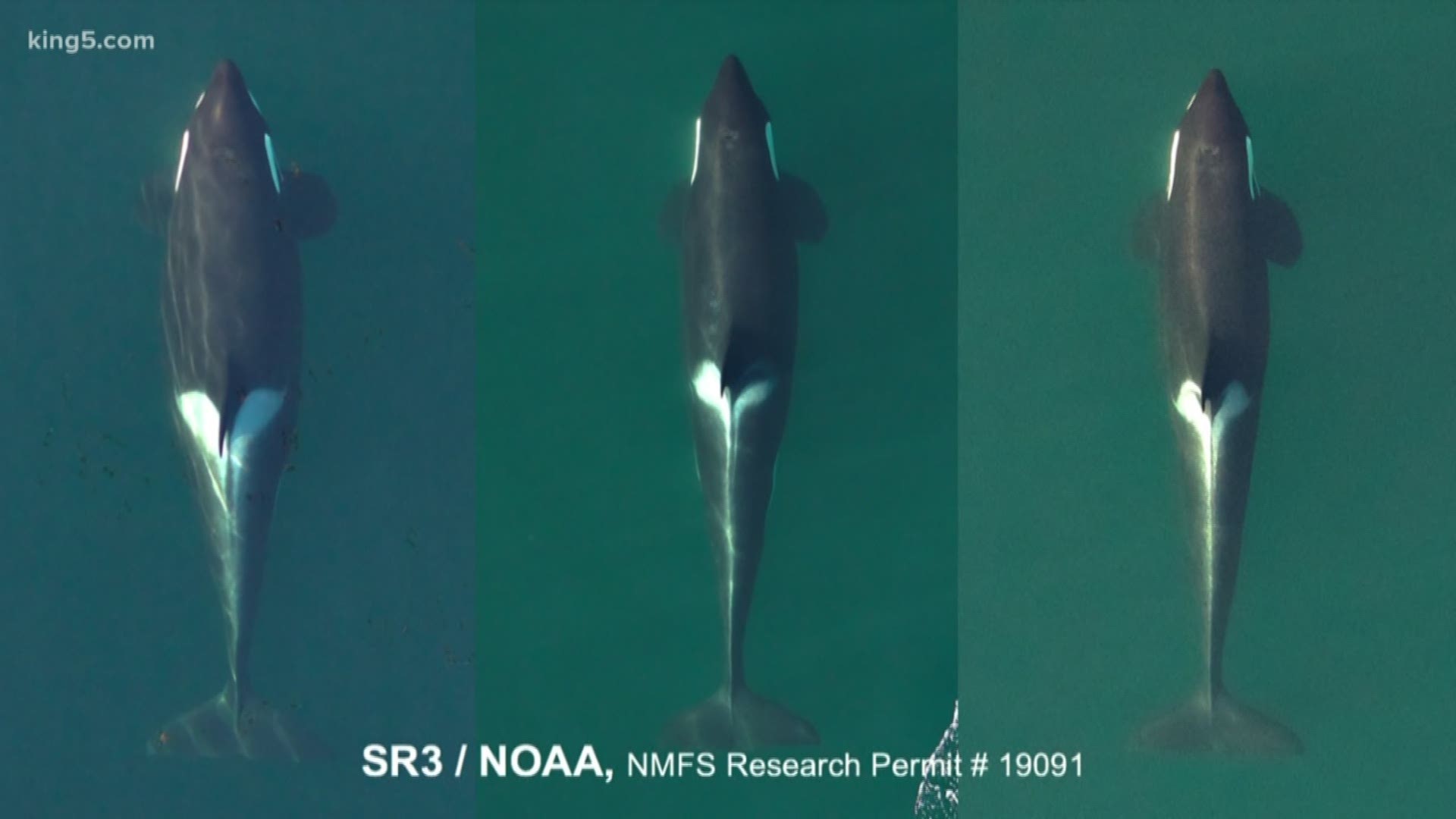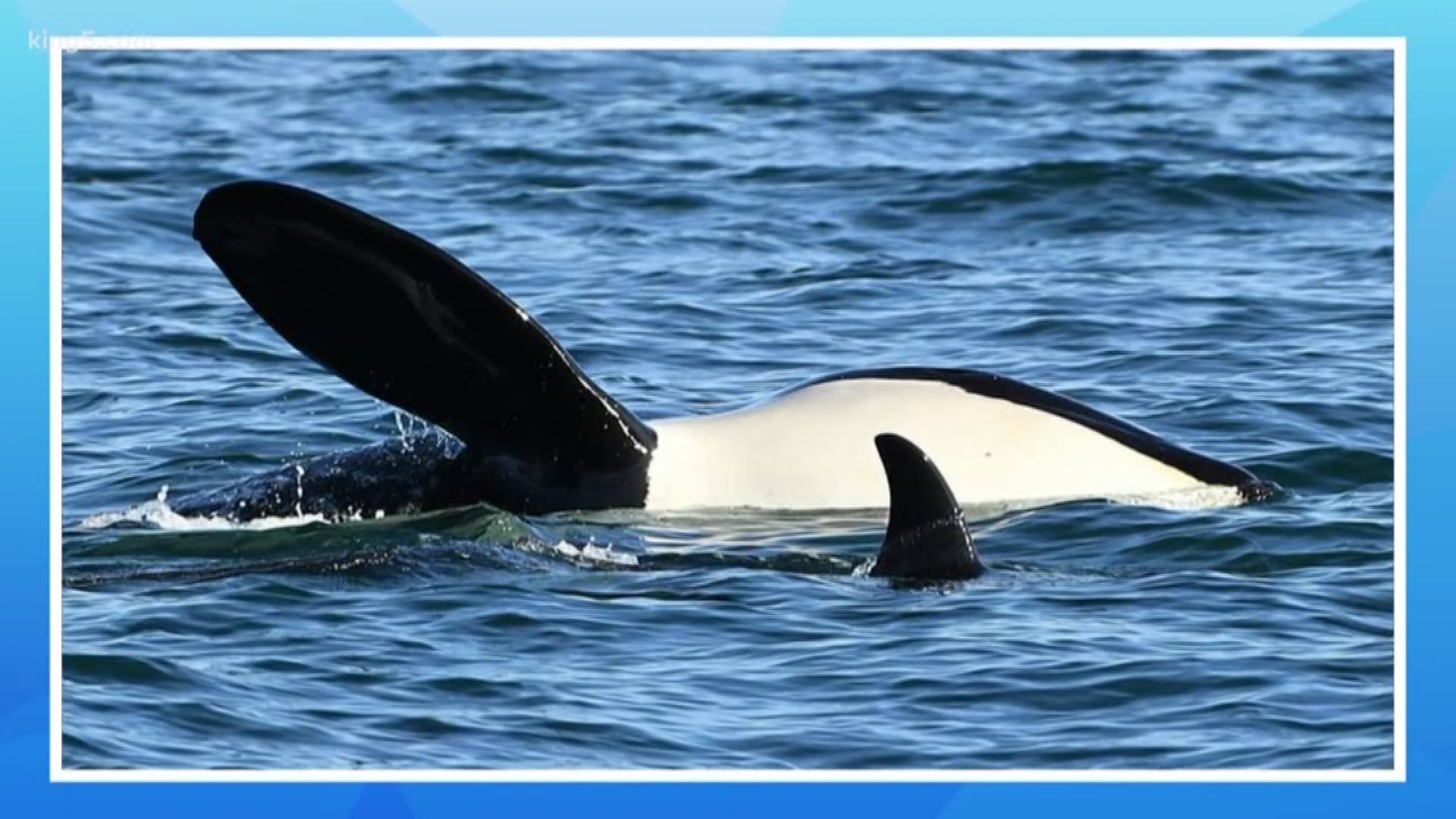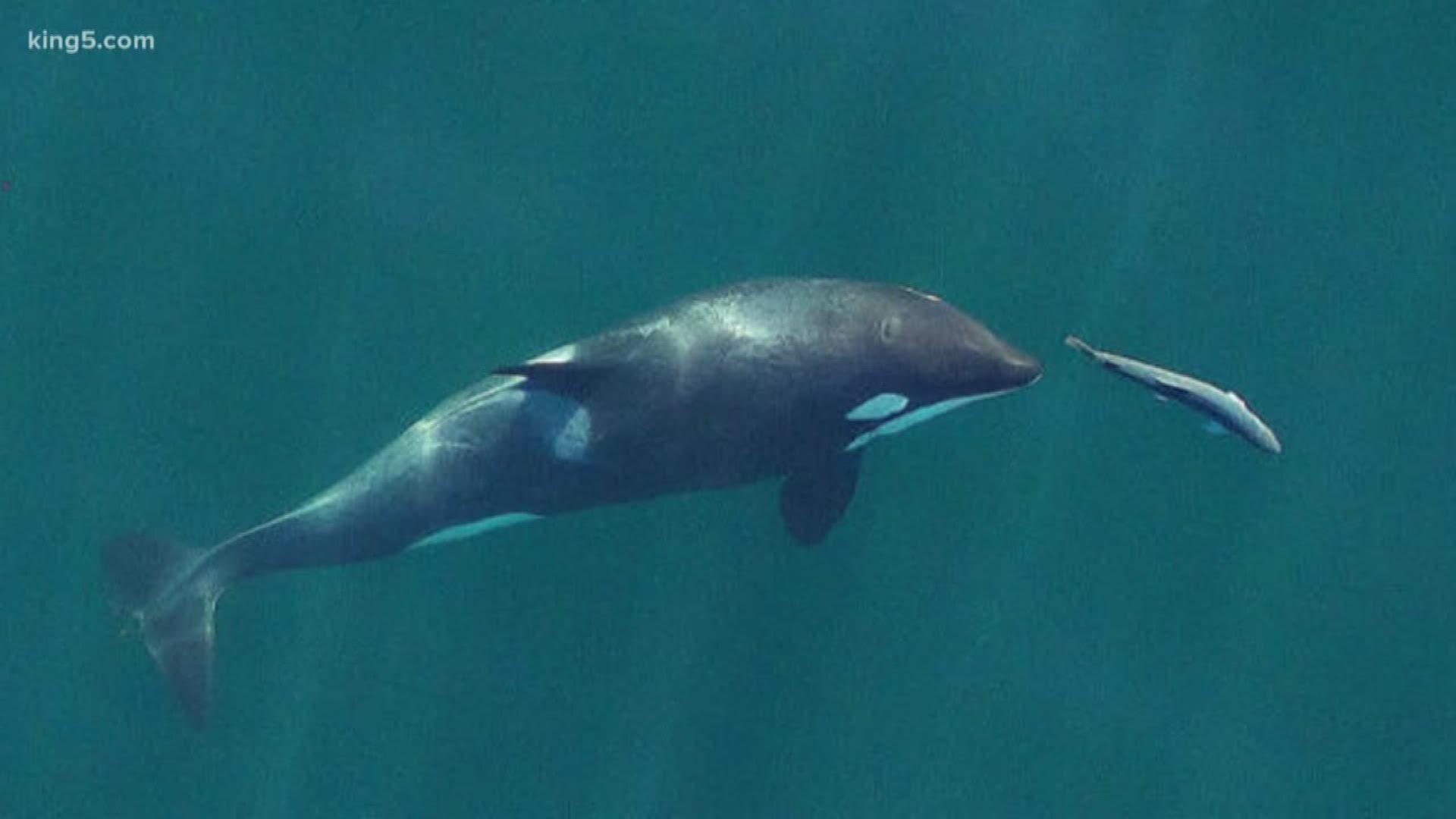Another Southern Resident Killer Whale may be near death, according to Ken Balcomb, director of the Center for Whale Research.
Orca J17 was observed with the J pod on Dec. 31 in Haro Strait, between San Juan Island and Vancouver Island. The 42-year-old female orca has a dire condition called peanuthead, a sign of malnutrition in orcas.
“She (J17) has some of the most severe depression of body fat behind the head that we’ve seen in a while and almost always they die reasonably shortly after,” Balcomb said Thursday.
The Center for Whale Research posted a summary of the Dec. 31 encounter. Although J17 was spotted near the J pod, she was not socializing with the group. Observers said her offspring, J35 and J53, "were acting mopey," perhaps sensing their mother's condition.
Daughter J35, age 20, made international headlines last summer after carrying her dead calf for 17 days and 1,000 miles.
Matriarch J17 lost another daughter, J28, in 2016. Shortly after, J28's calf also died. If J17 perishes soon, it's likely her son J44 would not survive much longer, Balcomb says. There is a 3-times higher chance a male orca dies after his mom does.
The Center for Whale Research posted this video of the Dec. 31 encounter:
J17 is not the only ailing Southern Resident killer whale. K25, a male orca, showed signs of declining health in September. When comparing photos of K25 in September to photos taken a year prior, it seems the orca is losing weight.


Young orca J50 disappeared from her pod in September after months of failing health. That put the number of Southern Resident orcas down to 74.
However, the number 74 is a misleading tally because not all of those orcas are reproducing. That means the opportunity to have more births than deaths is dwindling.
A Washington state orca task force presented a final proposal to save the endangered whales. The plan includes a moratorium on whale watching and calls for further study on dam removal.
Balcomb, founder of the Center for Whale Research, is critical of the plan.
"I feel extremely disappointed in myself that I was not able to convince the governor and his staff and the officials that this is urgent," Balcomb said. "I think their actions are based on political decisions rather than on reality. The urgency is clear. It is clear to everybody. But shutting down whale watching? Don’t look at them anymore? That’s ridiculous."
Balcomb fears it may already be too late to save the Southern Resident Killer Whales.
“We are very close to the point of no return and we actually may have already passed it.”
RELATED: Puget Sound resident orcas limited by social behavior



